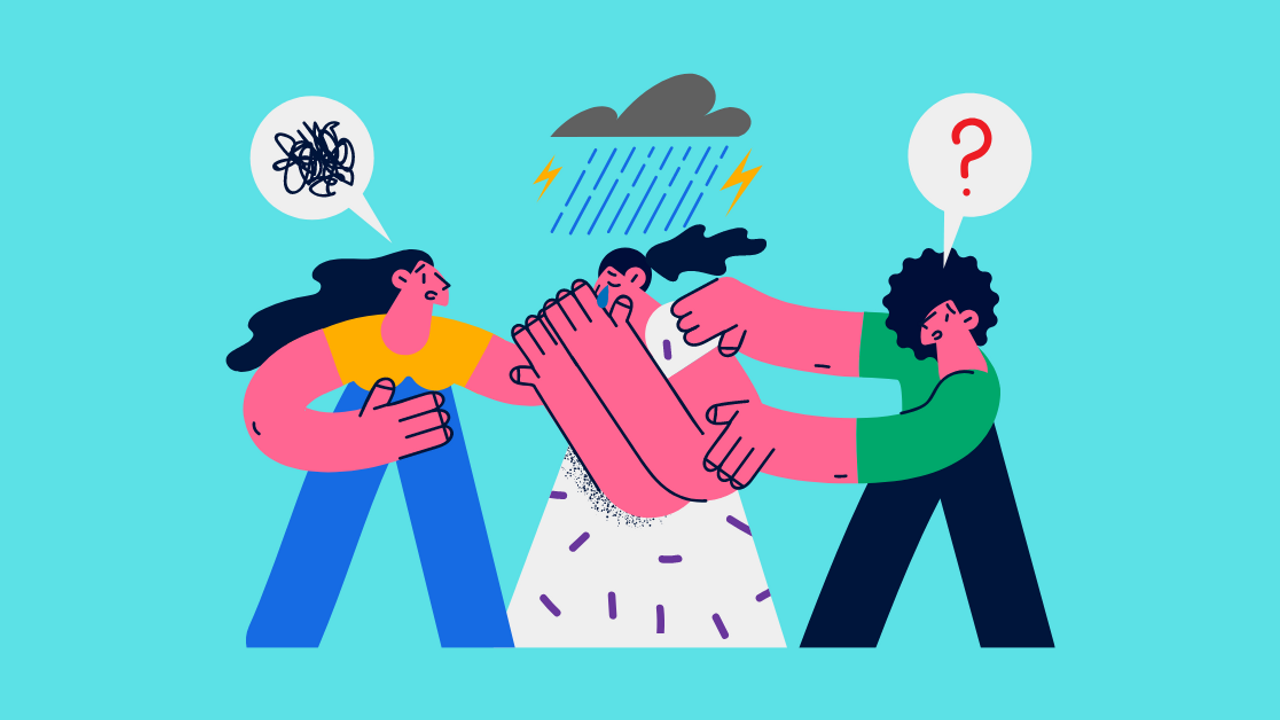Boundaries and Trauma in Relationships
Jul 06, 2022
Anyone who has been in a relationship with someone who is dealing with PTSD can tell you that there are some unique and sometimes difficult dimensions to making these relationships work. It is not the fault of the individual who is suffering, but the issues are theirs.
Getting into a healthy relationship with friends, family, spouses, or others, is one of the most important aspects of healing for sufferers of PTSD, so it is important to know what you can do in this situation.
Boundaries
Many people feel uncomfortable setting boundaries even in their more typical relationships. They feel like setting boundaries might be selfish or mean. This dynamic can be especially worrisome when we are talking about a group of people who may require some level of different treatment or extra understanding as they, hopefully, heal and process the trauma they have suffered.
Boundaries are a property line. They define what is you, and what is them. In relationships with people who have PTSD, it’s not uncommon for you to start to lose your sense of personal space and usual freedom, because there’s a lot of navigating around the trauma, and walking on eggshells, and wondering ‘did I cause that?’
So, when we think about boundaries and PTSD, it is important to simply recognize that the specific triggers and symptoms that they possess belong to them. It may feel sad or difficult to bear witness to some you care about obviously suffering, and you may wish that you could help more than you are able, but unless you are a trained professional, you may not be able to help in the specific ways that the person needs to work through the actual trauma. You are there as a friend, spouse, co-worker, or whatever the nature of your relationship is, and your role should fit within those dimensions, not that of a therapist.
In order to make this relationship work, the very first thing you’ve got to do is unplug from the notion that you are causing these issues. You are not. That is the PTSD. You can’t prevent it. The startle response they have, the activation, none of that is not you. Stay separate from it. But within that separateness… you can reach out over the fence. You can be very present. You can be very calm. You can say, “I understand you’re scared. I’m here. You’re here. We’re here.” Stay as calm as you can be from your side of the fence.
Get connected to this person in the ways that serve your relationship. Being a safe, reliable connection for them is one of the very best things you can do to help get them plugged back into life and healthy functioning.
You’re not the therapist, but there are ways that you can interact that can help.
You may have to be firm. Firm does not mean harsh.
Right now I am sitting on a chair. It’s not yelling at me, but it is firm. When we take a firm stance about help, we don’t enable the continuing to withdraw from life. We push them toward qualified help, and away from the things that don’t help. That is a role that you can comfortably assume. Be a source of connection. Be a safe, present, reliable ally.
And finally, do not allow the trauma to take over every aspect of the relationship. If you do everything above, this shouldn't be an issue. But if you are just starting out in addressing this aspect of your relationship, it is something that you should guard against. You have to make sure that the relationship itself is being served by the things that happen between you and together. If the trauma is allowed to take over every aspect of the relationship, there will be no way for the relationship to grow and stay healthy.



